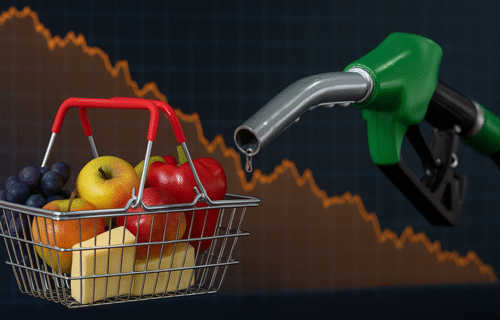Inflation in the Czech Republic continued to cool in September, dropping to 2.3% year-on-year from 2.5% in August, according to a preliminary estimate released by the Czech Statistical Office (ČSÚ). Consumer prices fell by 0.6% compared to the previous month, marking one of the sharpest monthly declines this year.
The figures indicate that inflation is now approaching the Czech National Bank’s 2% target, supported by cheaper food and fuel. The slowdown follows a summer peak in June when prices were up 2.9% annually before gradually easing through July and August.
Energy remained the only category showing year-on-year price declines, falling by 3.3%. Without energy prices included, inflation would have stood at 3.1%. Price growth also moderated for food and other goods. The cost of food, alcohol, and tobacco rose 2.9% in September, down from 4% a month earlier, while goods prices increased just 0.8%. Service prices, however, held steady with a 4.7% rise, suggesting that underlying inflation pressures remain in parts of the economy less affected by global price shifts.
Economists say the weaker-than-expected data was largely driven by lower food prices, particularly for butter and seasonal fruit, as well as a continued fall in fuel costs. The koruna’s appreciation against the dollar and lower global oil prices helped ease transport-related expenses.
“The main reason for the decline was the drop in food prices, followed by cheaper fuel,” said David Marek, chief economist at Deloitte. “The strengthening of the koruna also played a role, cushioning the impact of global energy prices.”
Other analysts noted that the timing of this year’s harvest may have shifted the usual seasonal pattern. “Food prices rose unexpectedly in August but fell back in September, suggesting that the effects of this year’s harvest were simply delayed,” said Vít Hradil, chief economist at Investika.
While the overall slowdown is encouraging, most analysts caution against expecting an immediate policy shift from the Czech National Bank. “Inflation came in below the central bank’s forecast of 2.6%, but the CNB is unlikely to react by cutting interest rates,” said Radomír Jáč, chief economist at Generali Investments CEE. “Price growth in services remains elevated, which will make policymakers cautious.”
The CNB’s key interest rate currently stands at 3.5%. Many expect the central bank to keep rates unchanged for several more months to ensure inflation remains anchored near its target.
Jan Bureš, chief economist at Patria Finance, added that the downward trend in food and energy prices may continue into the final quarter of the year. “We could see inflation move closer to 2% in October or November, especially if the disinflationary trend in energy persists,” he said.
For now, the Czech Republic remains one of the few countries in the EU where inflation has returned close to pre-crisis levels, offering a sign of relief for households after two years of price volatility. Still, economists warn that service-sector inflation and wage growth could keep underlying pressures alive into 2026.
Source: CTK
